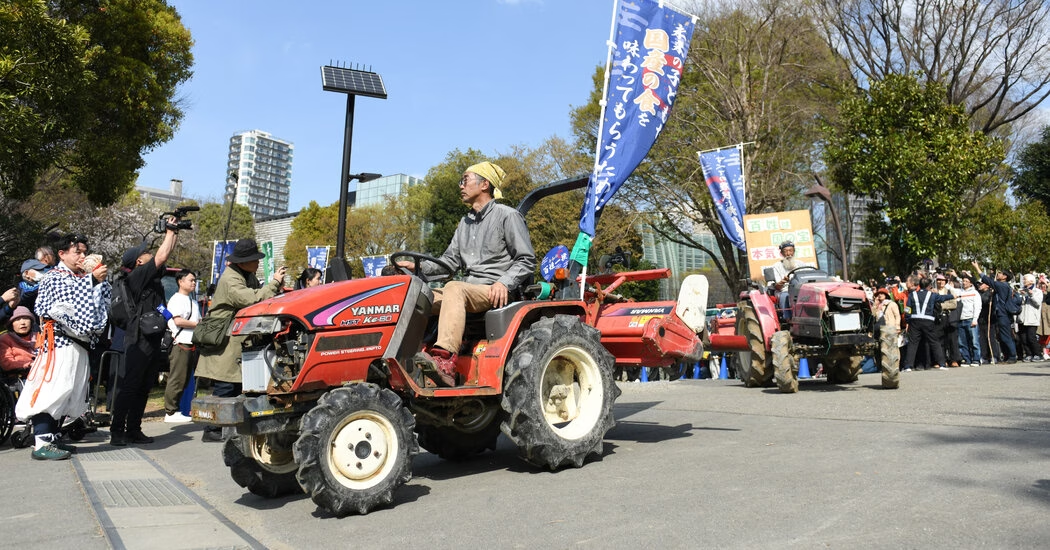The rising cost of eggs in the United States has sparked a national debate, hinting at broader economic concerns and questions about government intervention. Similarly, Japan is grappling with its own food affordability issue, but concerning rice. Over the past year, Japan faced a significant shortage of rice – more than 200,000 tons – leading to increased prices and purchase restrictions, which then resulted in the government having to tap into its emergency rice supplies.
What’s intriguing is while Japan struggles with shortages, it continues to pay farmers to limit their rice cultivation, a policy in place for over half a century and costing billions annually.
Farmers, frustrated with government restrictions, took to the streets in Tokyo under the cherry blossoms, showcasing their distress with signs like “Rice is life” and “We produce rice, but cannot make a living.” This protest coincided with the government’s struggle to manage inflation, which reached 19 percent last month, predominantly due to an 81 percent hike in rice prices.
The shortage also comes as Japan prepares for an upcoming upper house election in July – the first nationwide poll for Prime Minister Shigeru Ishiba. His predecessor resigned amid public dissatisfaction over the cost of living.
Experts point out that the root of the problem lies in a decades-old policy aimed at reducing arable land for rice to maintain high prices and support farmer incomes. However, this policy hasn’t been effective in attracting younger generations to the farming industry, with many rice farmers making around $23,000 annually.
Critics argue that rather than limiting production, Japan should adopt a policy similar to the US and EU approach, allowing farmers more freedom to produce while subsidizing potential losses due to price fluctuations. This would cost the Japanese government slightly more than their current spending but is expected to increase food security, lower consumer prices, and make farming more appealing to the younger generation.
Historically, debates over agricultural policy have led to political changes in Japan. Without fundamental agricultural reform, the issue of rice shortages will continue and may further escalate tensions among farmers and citizens as the summer elections approach.
Source: https://www.nytimes.com/2025/03/30/business/japan-rice-farmer-protest.html





